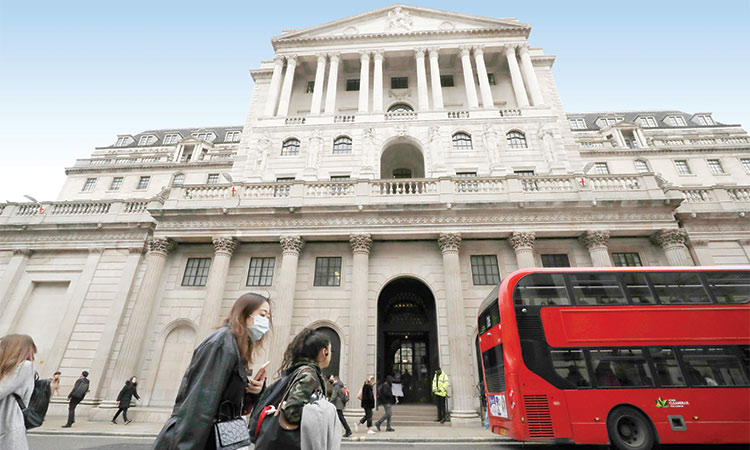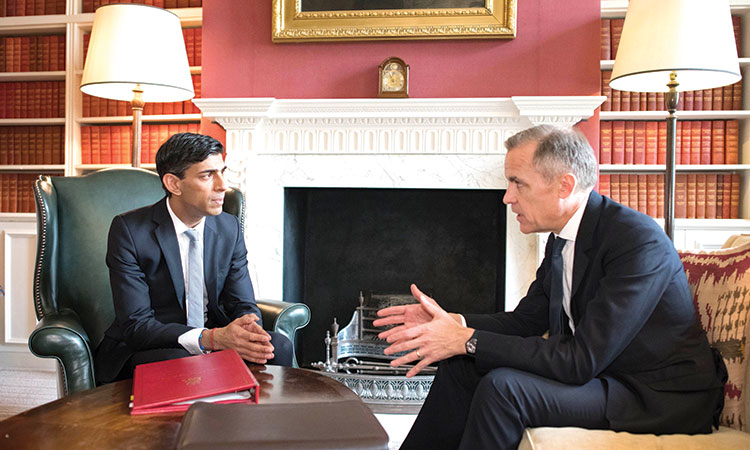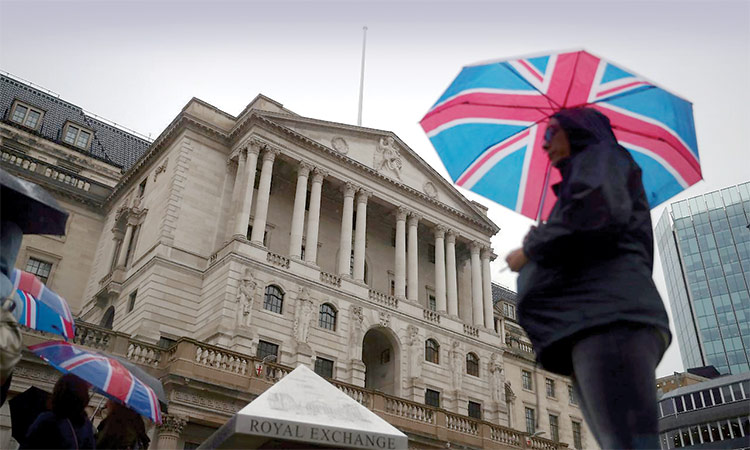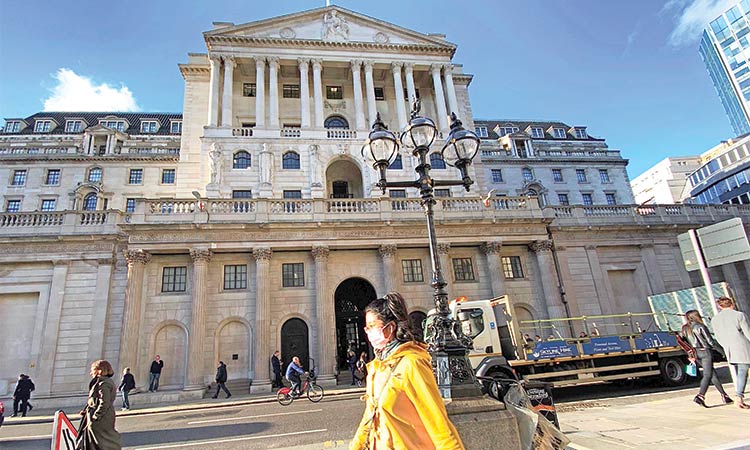BoE sees economic recovery, keeps main stimulus programme on hold

A pedestrian walks past the Bank of England building in London. File/Reuters
As it kept its main stimulus programme on hold, the BoE said it was ready to take further action as it highlighted uncertainties about rising COVID-19 cases, the risk of higher unemployment and a Brexit shock.
“Recent domestic economic data have been a little stronger than the Committee expected at the time of the August Report, although, given the risks, it is unclear how informative they are about how the economy will perform further out,” it said.
“The Committee will continue to monitor the situation closely and stands ready to adjust monetary policy accordingly to meet its remit. The MPC will keep under review the range of actions that could be taken to deliver its objective.”
The BoE said the Monetary Policy Committee had been briefed “on the Bank of England’s plans to explore how a negative Bank Rate could be implemented effectively, should the outlook for inflation and output warrant it at some point during this period of low equilibrium rates.”
Sterling fell sharply after the announcement, weakening by around 0.5% on the day against the U.S. dollar.
BoE Governor Andrew Bailey and some of his colleagues have previously said that they were still working out the pros and cons of following the lead of other central banks, including those of the euro zone and Japan, of taking rates negative.
As expected, the BoE kept its benchmark interest rate at 0.1% and it left unchanged the size of its bond-buying programme at 745 billion pounds ($966 billion).
The BoE’s nine monetary policy-makers voted unanimously to keep rates on hold and to make no change to its ongoing bond-buying programme.
Economists polled by Reuters had expected the BoE to hold steady at its September policy meeting. Many of them expect the central bank to increase the size of its bond-buying programme in November.
Meanwhile, a hefty drop in restaurant prices, spurred by Britain’s scheme to support the hospitality sector through the COVID-19 pandemic, helped to push inflation down last month to its lowest rate in almost five years.
Consumer prices rose by 0.2% in annual terms in August, the smallest increase since December 2015 and a sharp slowdown from July’s 1.0% increase, the Office for National Statistics (ONS) said on Wednesday.
A Reuters poll of economists had pointed to a reading of 0.0%.
Discounts for more than 100 million meals were claimed via the government’s “Eat Out to Help Out” programme, which offered diners a state-funded price reduction of up to 10 pounds ($12.89) between Mondays and Wednesdays in August.
Prices in restaurants and cafes were down 2.6% compared with August last year, their first fall since records began in 1989.
While this prompted an unusually large fall in the rate of inflation, the shock of the coronavirus pandemic on the economy and a coming surge in unemployment look likely to keep consumer prices in check.
A cut in value-added sales tax in the hospitality sector - another part of the government’s emergency plans - plus falls in air fares and a smaller-than-usual rise in clothes prices also helped to push annual inflation down. “While we expect an initial bounce-back in inflation in September, as the ‘Eat Out to Help Out’ scheme comes to an end, overall inflation is likely to remain well below the Bank of England’s target for some time,” said Yael Selfin, chief economist at KPMG.
The consumer price index has now been below the BoE’s target for 13 months in a row.
Most economists polled by Reuters think sharply rising unemployment and a slowing recovery will prompt the BoE to pump more stimulus into the economy before the end of this year.
The ONS said eight items in the inflation basket were still unavailable to its price collectors, reflecting things that remain off-limits, such as tickets to the theatre, soccer matches and horse racing, and catering for more than 50 people.
In April, during the most stringent period of the lockdown, 90 items had been unavailable.
There were already signs that inflation pressure would remain weak. Factory output prices fell for the fifth month in a row in annual terms — the longest such run in four years - as weaker oil prices pushed them down by 0.9%.
Reuters







